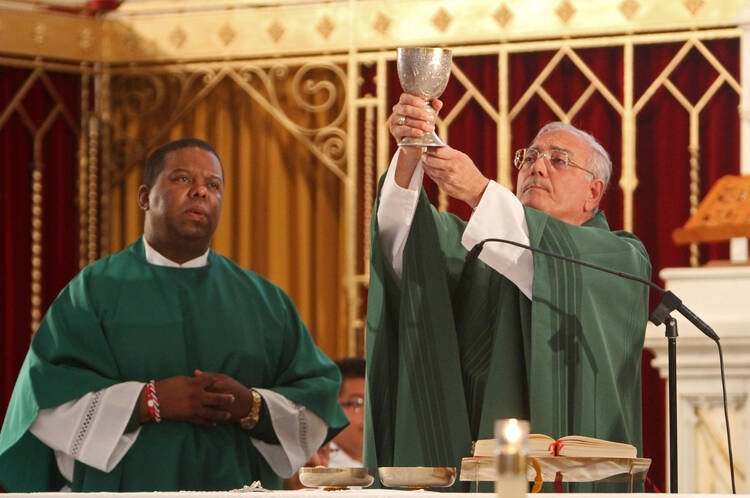The Roman Catholic bishop of Brooklyn, one of the largest and most diverse dioceses in the U.S., is defending immigrants in a powerful essay that—without mentioning names—seems to take direct aim at Donald Trump and his supporters by ripping the “racist and xenophobic tendencies” in society and arguing that immigration in fact helps the economy.
“Those who are in favor of mass deportation seem not to have an understanding of what this might mean for our reputation, and the lives of those who are deported,” Bishop Nicholas DiMarzio wrote in his weekly column for the diocesan newspaper.
But besides the human toll, he argued, the “estimated costs of mass deportation would be $400 billion and [would] reduce the gross domestic product … by about $1 trillion.”
Trump, the brash New York real estate tycoon who is the presumptive Republican presidential nominee, has regularly disparaged immigrants, especially Latinos, and has vowed to deport millions of them and build a wall along the border with Mexico.
DiMarzio, whose ministry before he became a bishop focused on immigration and labor issues, wrote in his column on May 21, titled "The Facts About Immigration," that he dislikes the “current politicization of the issue of undocumented workers in our country.”
He stressed that human beings cannot be “illegal” and added that the question of undocumented immigrants is “not an issue that can be solved without addressing the racist and xenophobic tendencies that lay below the veneer of even just societies.”
But DiMarzio said that while the Bible’s words and Catholic teachings on welcoming immigrants is clear, his defense of immigrants “will not be a religious one” but would be based “on past research and present analysis of this issue.”
DiMarzio went on to note that his own research, when he did post-graduate work on immigrants and the economy back in the 1980s, found that undocumented immigrants contributed billions to Social Security and paid taxes though they did not necessarily receive the benefits of those contributions -- a phenomenon that persists to this day, he wrote.
The bishop detailed how the immigration system has worked in the past by encouraging immigrants to enter the U.S. and then regularizing their status, and he said the current outdated system must be reformed to provide the same pathway to citizenship or another recognized and stable status.
“To exclude the undocumented from citizenship would be to return to a two-tiered society,” DiMarzio wrote. “We have enough experience with the exclusion of former slaves and their descendants to remind us that those who are members in our society should never be excluded from the full rights of citizenship.”
“We must put out into the deep recesses of our memory as a nation built by immigrants. We cannot forget the contributions of the past nor the present made by new Americans in building our society and our church.”
The Brooklyn diocese covers the New York City boroughs of Brooklyn and Queens, and while it is geographically small it is one of the most populous of the 189 U.S. dioceses, with 1.5 million Catholics from around the world.
That diversity does not mean that DiMarzio will earn universal praise from his flock.
In the New York primary in April that Trump won convincingly, the GOP candidate did somewhat better in Brooklyn and Queens than elsewhere in the state, and he appeared to draw especially strong support from old-line Irish and Italian Catholic neighborhoods.








